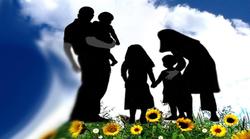 The first characteristic of the pious is uttering the right words, and it refers to the manner of speaking of the pious. The second characteristic owned by the pious is what/how they wear (their dressing is moderate).
The first characteristic of the pious is uttering the right words, and it refers to the manner of speaking of the pious. The second characteristic owned by the pious is what/how they wear (their dressing is moderate). Each society can introduce the fruit of its own ideology to others if its lifestyle is shaped according to its values and beliefs; the selection of lifestyle determines the future of the man and consequently, the future of the society; thereby, without properly knowing and understanding the lifestyle, the habits and style of living of the man and society will go astray, and as a result, the ignorance of the lifestyle can inflict some irreparable damages on the society.
According to the correspondent of Vasael, one of the targets of Quran is the education of the proper lifestyle, and the recognition of the values, do’s and don’ts, covered by the verses of the Holy Quran, definitely introduces the said lifestyle, and the adaptation of the lifestyles to the Quranic styles directs the man towards the felicity and happiness.
Quran denounces the non-Heavenly lifestyles through some different verses, and the said denouncement applies to both the individual and collective aspects of lifestyle; for example, the following verses, point to the individual aspect of lifestyle: “اِن الانسانَ لَفِی خُسرٍ” [Indeed, mankind is in loss] (Asr Surah, verse no. 2) “وَ جَعَلُوا لَهُ مِن عِبادِهِ جُزءً اِنَّ الانسانَ لَکَفُورٌ مُبینً” [But they have attributed to Him from His servants a portion. Indeed, man is clearly ungrateful.] (Zokrof, verse no. 15) “وَ یَدعُ الانسانُ بِالشَّرِّ دُعاءَهُ بِالخَیرِ وَ کانَ الانسانُ عَجُولاً” [And man supplicates for evil as he supplicates for good, and man is ever hasty] (Asraa, verse no. 11).
And the following verses point to the collective dimension of lifestyle: “وَاتَّقوا فِتنَهً لَّا تُصِیبَنَّ الَّذینَ ظَلَمُوا مِنکُم خاصَّهً وَاعلَمُوا اَنَّ اللهَ شَدیدُ العِقَابِ” [And fear a trial which will not strike those who have wronged among you exclusively, and know that Allah is severe in penalty] (Anfal, verse no. 25) “وَ مَا اَرسَلنَا فِی قَریَهٍ مِّن نَّبِیِّ اِلّا اَخَذنَا اَهلَهَا بِالبَاساءِ وَالضَّرَّاءِ لَعَلَّهُم یَضَّرَّعُونَ ثُمَّ بَدَّلنَا مَکانَ السَّیئَهِ الحَسنَهَ حَتَّی عَفَوا وَّ قالُوا قَد مَسَّ ءابَاءَنَا الضَّرَّاءُ وَ السَّرَّاءُ فَاَخَذنَاهُم بَغتَهً وَهُم لَایَشعُرُونَ” [And We sent to no city a prophet [who was denied] except that We seized its people with poverty and hardship that they might humble themselves [to Allah ]. Then We exchanged in place of the bad [condition], good, until they increased [and prospered] and said, "Our fathers [also] were touched with hardship and ease." So We seized them suddenly while they did not perceive.] (Araf, verses no. 94-95). Besides, these verses introduce the proper lifestyle approved of by Islam, they point to the ideal Islamic lifestyle as the pure life, though the phrase pure life has only been used once in the holy Quran.
The lifestyle according to Imams (AS)
The topic of the Islamic lifestyle has been dealt with by the holy religion of Islam for 1400 years under different titles and through different narratives [accessible in different Islamic resources] provided by the Prophet of Islam (S) and the infallible Imams on the happy and virtuous life and encouraging Muslims to observe the religious orders in all the stages of the life. As an instance, a narrative on the proper lifestyle is the sermon no 193 of Nahj al-Balagha, some different parts of which deal with the lifestyle of the pious.
According to this sermon, the first characteristic of the pious is uttering the right words, and it refers to the manner of speaking of the pious. The second characteristic owned by the pious is what/how they wear (their dressing is moderate). This section points to the proper dressing of the pious, and it is an important aspect of the Islamic lifestyle. The next characteristic of the pious is their modesty/humility (they behave modestly); it means the pious behave modestly, and it doesn't only apply to their walking, but to all their conducts.
The next characteristic attended to by Imam Ali (As) is closing eyes on the illicit issues (they close their eyes on what has been determined illicit by Allah), it shows that the pious control their eyes in the face of the illicit issues and abstain from watching such issues.
In the next part, the sermon points to listening to the useful materials by the pious (they dedicate their ears to listening to the useful materials); this part appears to refer to the fact the pious don’t waste their time listening to useless issues, and they use their ears for acquiring the valuable materials. The mentioned parts refer to some characteristics of and introduce the lifestyle of Imams and the lifestyle introduced by the Holy Quran.
Concerning the happy felicitous program for the life, Imam Ali (AS) provided his son, Imam Hassan (AS), with the following recommendation: “O my son, three data-x-items should exist in the program of the pious man: a time for worshipping God, a time for measuring his own self and a time for having licit enjoyment and adorning/cleaning the self; and the believer should also be active in three things: Correcting the living affairs, taking steps for the Hereafter and religiously licit enjoyments” (Ibn Shuba Hurrani, 1983, volume one, page 11).
To be continued
Rasa News Agency
VoI847/940